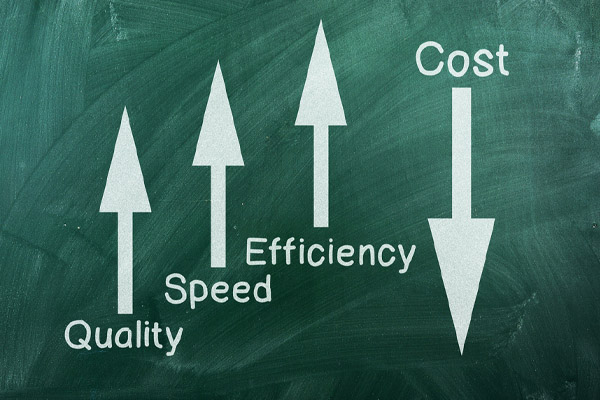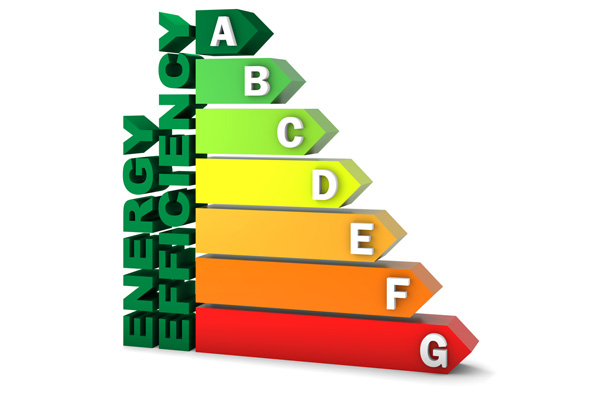What Does AFUE Rating Really Mean?

Energy Star reports that your home HVAC system accounts for almost 50% of your overall energy costs. One method to cut this bill is to make smart decisions about your heating and cooling system’s maintenance, replacements, and repairs. When replacing a heating system, you should be familiar with the Annual Fuel Utilization Efficiency, or AFUE rating. It has a direct impact on your energy consumption and bills.
Read on to learn more about the AFUE rating.
AFUE Rating Definition
Contents
 The American Society of Heating, Refrigerating, and Air Conditioning Engineers (ASHRAE) created the Annual Fuel Utilization Efficiency (AFUE). It is a percentage that measures a heating system’s energy efficiency. Examples of heating systems are furnaces, boilers, and water heaters. Generally, AFUE rating is defined as the ratio of the heat produced against the heating unit’s total fuel consumption.
The American Society of Heating, Refrigerating, and Air Conditioning Engineers (ASHRAE) created the Annual Fuel Utilization Efficiency (AFUE). It is a percentage that measures a heating system’s energy efficiency. Examples of heating systems are furnaces, boilers, and water heaters. Generally, AFUE rating is defined as the ratio of the heat produced against the heating unit’s total fuel consumption.
Calculating the AFUE rating of your heater means dividing the amount of fuel used by the system by the amount of heat generated. This is typically in the British thermal unit (BTU). For instance, if your system has an 85% AFUE value, then 85% of the fuel energy used is for heating, while the remaining 15% is lost to inefficient burners, chimneys, and others. Take note that AFUE doesn’t account for any heat that’s lost in HVAC ducts and pipes. The heat loss can be a significant number. As per the US Department of Energy (DOE), ducts in attics, garages, and other unconditioned areas can lose up to 35% of the furnace energy output.
A high AFUE value usually means that the furnace is highly efficient and vice versa. Therefore, having a high AFUE rating means you’ll have lower fuel costs. Take note that electric heat pumps don’t use AFUE in heating mode. They use Heating Season Performance Factor (HSPF) instead. The US Department of Energy now uses AFUE as a national measurement standard to indicate a heating system’s combustion efficiency.
The DOE set the AFUE rating for gas heating systems to promote energy efficiency across the US. It is currently at 80% and 90% for the Southwest and Northern regions, respectively. As a result, nearly all new furnaces made today have AFUE ratings of 90% or higher.
How To Find The AFUE Rating
The Federal Trade Commission requires furnace and boiler manufacturers to give the AFUE ratings of their products as this will help consumers make smart decisions during purchase. Most manufacturers put this information in the EnergyGuide label or the yellow tag you see in most electrical appliances. If you cannot find the EnergyGuide label or the rating isn’t on the yellow tag, check your owner’s manual or look it up on the manufacturer’s or retailer’s website. Remember that heating systems usually become less efficient as time passes. Therefore, the manufacturer’s printed AFUE rating is likely higher than your system’s actual rating. Have an HVAC professional inspect your system to get its actual AFUE rating.
What Is A Good AFUE Rating?

As per the DOE, anything above 80% for those living in the Southwest and 90% for the Northwest region is a good AFUE rating. Heating systems typically become less efficient over time. Under-performing or old heating units can have AFUE ratings as low as 56% to 70%. The DOE standards require that the AFUE ratings of new systems should be at least 78%. Heating systems can be classified as low-efficiency (less than 80%), mid-efficiency (80% to 89%), and high-efficiency (90% or higher) based on their AFUE ratings. The highest AFUE rating is 97% to 98.5% because of heating system inefficiencies, such as firing and distribution losses.
How Can Homeowners Use AFUE Ratings?

The AFUE rating measures the efficiency of your furnace’s operation. In general, furnaces lose efficiency as time passes. Therefore, older furnaces likely have lower AFUE values. The heating systems sold in the United States before 1975 weren’t required to meet any minimum AFUE ratings. The minimum AFUE rating was set to 78% in 1987 and increased to 80% in 2015 by the DOE. Furnaces that are 15 years old and over are inefficient and costly to operate. Replacing it with even a low-efficiency system with an AFUE rating of 80% can result in higher energy savings and lower energy costs. If you want more savings, select a furnace with a higher rating. The most energy-efficient systems today have around 98.5% AFUE rating. Keep in mind that the AFUE rating you choose will significantly affect your carbon footprint and energy bills.
Should I Buy A High-Efficiency Furnace?
Several factors need to be considered before answering this query. The first factor is the location of your home. If you live in a cold region and use your furnace often, a high-efficiency furnace is your best option as it will provide you with great energy savings in the long run. Its efficiency can be as much as 18.5% more than a low-efficiency system. Various studies state that American households spend an average of $600 or more on heating annually. Therefore, you can save up to $111 a year when you have a high-efficiency system.
You also need to consider your budget. High-efficiency furnaces have an average initial cost of around $1,000 more than mid-efficiency ones. However, furnaces generally have a lifespan of 15 to 20 years. Saving $111 for 15 years means you’ll have a total savings of over $1,600. Therefore, the system will eventually pay back its additional installation cost.
Features of High AFUE Furnaces
In general, furnaces with high AFUE ratings support new features and technologies to provide you with unparalleled energy efficiency. Here are some of their standout features:
- Improved air filtration systems
- Variable speed blowers
- Variable heat output
- Secondary heat exchanger
- Direct spark ignition systems
Conclusion
AFUE measures the heating system’s energy efficiency. It is used by the US Department of Energy as the standard for furnace efficiency. All furnaces sold in the United States should have a minimum 80% AFUE rating or higher.
Call Point Bay Fuel For All Of Your HVAC Requirements

Point Bay Fuel provides top-quality heating and cooling services in Ocean and Monmouth County, New Jersey. Our company has highly trained and the best professionally certified technicians for all your HVAC service needs, including boiler tune-ups, air conditioner repairs, furnace installations, and more. All our techs are knowledgeable, skilled and experienced in working on any HVAC system correctly.
Rest assured, we have the most competitive HVAC service prices in the area. Our maintenance services can enhance comfort and energy efficiency while reducing your energy bills. When you need to replace or repair your HVAC system, we can recommend the best solutions that fit your home and budget. All our work comes with a guarantee. Book a service appointment by calling Point Bay Fuel today. We offer in-home estimates.
Contact us now by calling (732) 349-5059 to speak to one of our home comfort specialists!
